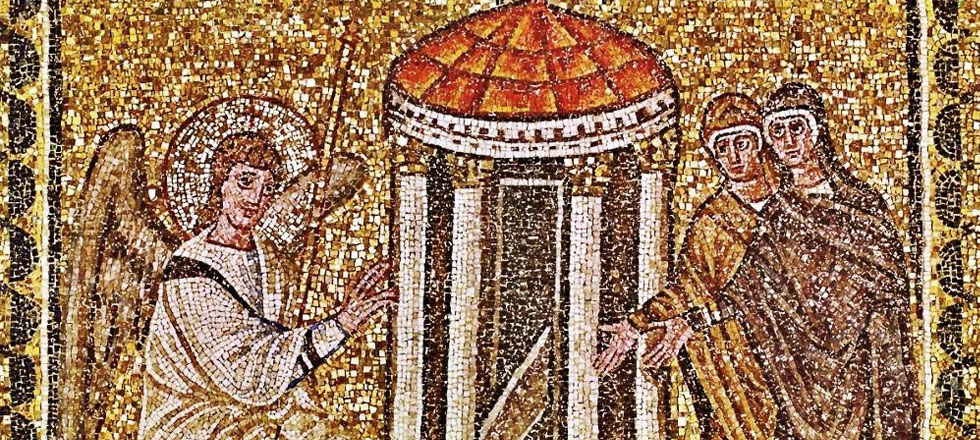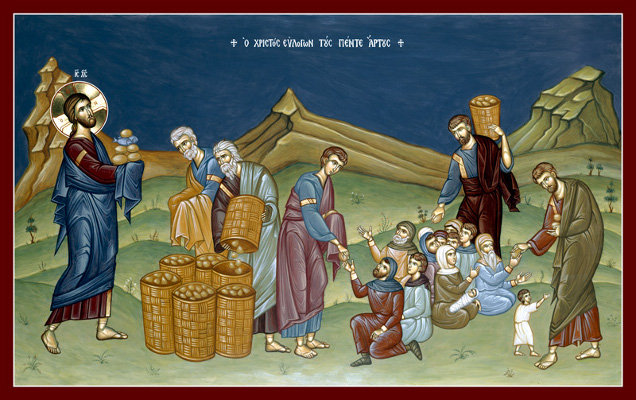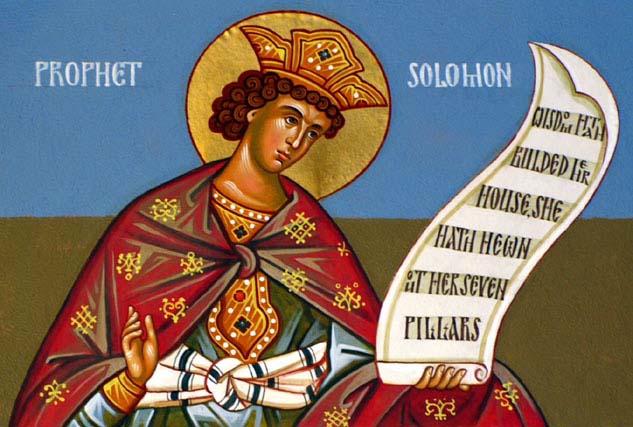Surrendering Breadcrumbs for the Banquet
 Here’s the talk recently given by my friend Catalina:
Here’s the talk recently given by my friend Catalina:
"We are travellers…not yet in our native land" – St. Augustine
 Here’s the talk recently given by my friend Catalina:
Here’s the talk recently given by my friend Catalina:
 Last week I did a post on “Peter and the Fathers” where I posted the quotations which our pastor included in our parish’s newsletter. Today is another reproduction from our bulletin on the subject of Oral Tradition:
Last week I did a post on “Peter and the Fathers” where I posted the quotations which our pastor included in our parish’s newsletter. Today is another reproduction from our bulletin on the subject of Oral Tradition:
“For wherever both the true Christian rule and faith shall be shown to be, there will be the true Scriptures, and the true expositions, of all the true Christian traditions
– Tertullian, The Prescription of Heretics, 19 (AD 200)
“Of the beliefs and practices whether generally accepted or publicly enjoined which are preserved in the Church some we possess derived from written teaching; others we have received delivered to us ‘in mystery’ by the tradition of the Apostles; and both of these in relation to true religion have the same force. And these no one will contradict; no one, at all events, who is even moderately versed in the institutions of the Church. For were we to attempt to reject such customs as have no written authority, on the ground that the importance they possess is small, we should unintentionally injure the Gospel in these matters…”
– St. Basil the Great, On the Holy Spirit 27 (AD 375)
“I have often then inquired earnestly and attentively of very many men eminent for sanctity and learning, how and by what sure and so to speak universal rule I may be able to distinguish the truth of Catholic faith from the falsehood of heretical depravity; and I have always, and in almost every instance, received an answer to this effect: That whether I or anyone else should wish to detect the fraud and avoid the snares of heretics as they arise, and to continue sound and complete in the Catholic faith, we must, the Lord helping, fortify our own belief in two ways: first by the authority of the Divine Law, and then, by the Tradition of the Catholic Church.
– St. Vincent of Lerins, Commonitory 2 (AD 434)

The difference is obviously 1,000! However, there’s another importance difference and I’d like to take a look at that today…

For the last few weeks, for one reason or another, I haven’t been able to attend the Divine Liturgy at my parish, meaning that I’ve had to go to a Roman Mass instead. The Readings for the last couple of weeks in the Roman Lectionary have been rather interesting. Over the next couple of days I wanted to share a few extremely brief thoughts…
The First Reading on 27th July caught my attention. We heard of Solomon’s encounter with the Lord, and God’s gift to him of divine wisdom. At the end of the passage, God says to Solomon the following:
“I give you a heart so wise and understanding that there has never been anyone like you up to now, and after you there will come no one to equal you.” – 1 Kings 3:12
It struck me that this is a perfect example as to why we have to be careful when we interpret the Bible. If we were to take this passage literalistically*, we would have to conclude that Solomon is absolutely, categorically, the wisest man ever. However, from the Christian point of view, that’s not true, is it? What about Jesus? Wasn’t Jesus wiser than Solomon?
“Well, obviously, Jesus is the exception!” some might say. Now, that’s true, but it does at least demonstrate the point that words like “never” and phrases like “no one” aren’t always quite as absolute as they may first appear.

* This is in contrast to interpreting a passage literally, which is where we look to the meaning intended by the Author. The phrase “It’s raining cats and dogs”, when literally interpreted, means that it’s raining heavily. To interpret “It’s raining cats and dogs” literalistically means that family pets are falling form the sky.
I’ve mentioned before about being rather mystified about how people talk contrast Pope Francis with Pope Benedict as though Pope Francis is doing something utterly different from his predecessors…
The new pastor at my parish has taken to regularly including quotations from the Early Church Fathers. Here are the quotations on the feast of St. Peter and Paul:
Accept our counsel and you will have nothing to regret. If anyone disobeys the things which have been said by [Jesus] though us, let them know that they will involve themselves in no small danger. We, however, shall be innocent of this sin and will pray with entreaty and supplication that the Creator of all may keep unharmed the number of his elect
– St. Clement of Rome, Letter to the Corinthians 58:2, 59 (AD 95)
The Lord says to Peter “I say to you that you are Peter and upon this rock I will build my Church” On him he builds the Church and to him he gives the command to feed the sheep (John 21:17), and although he assigns a like power to all the apostles, yet he founded a single chair [cathedra], and he established by his own authority a source and an intrinsic reason for that unity. Indeed the others were also that which Peter was [i.e. apostles], but primacy is given to Peter, whereby it is made clear that there is but one Church and one chair. So too all [the apostles] are shepherds, and the flock is shown to be one, fed by all the apostles in single-minded accord. If someone does not hold fast to this unity of Peter, can he imagine that he still holds the faith? If he should desert the chair of Peter upon whom the Church was built, can he still be confident that he is in the Church?
– St. Cyrpian of Carthage, The Unity of the Catholic Church (AD 252)
For the Father gave to Peter the revelation of the Son; but the Son gave him to sow that of the Father and that of Himself in every part of the world; and to a mortal man He entrusted the authority over all things in heaven, giving him the keys, who extended the Church to every part of the world, and declared it to be stronger than heaven
– St. John Chrysostom, Homily LIV on Matthew 16:2,3